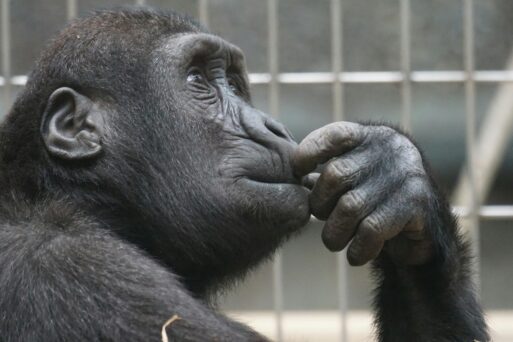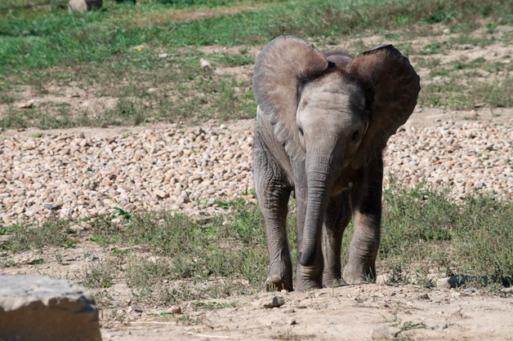
Zoo staff often form long-term relationships with the animals they care for.
In recent years, there has been a growing understanding of the impact of pet loss. For those who work in zoos and aquariums, this grief can be compounded when multiple animals die in succession – prompting new approaches to grief support.
Five beloved animals died recently at the Pittsburgh Zoo & Aquarium. While the zoo loses about 15-25 mammals a year, this recent loss includes some of their most “charismatic” creatures: a sea lion named Seahawk, a gorilla named Mrithi, a red panda named Kovu, a lion named Kit and an elephant calf named Tsuni.
President and CEO Jeremy Goodman told CBS News that the zoo’s leaders and management brought in grief counselors to support the staff. He states, “Sharing our deaths and tragedies is something very new for our zoo, quite honestly,” Goodman said. “It’s not something that we’ve done historically before; it’s not something that we’ve shared with the media and the general public.”

Tsuni, the elephant calf, was beloved by both staff and visitors
Credit: Pittsburgh Zoo & Aquarium
While several of the animals that passed were geriatric, Tsuni died from elephant endotheliotropic herpesvirus (EEHV) at just 2 years old. “Tsuni held a special place in the hearts of staff and visitors alike,” Goodman said in a press release on the Pittsburgh Zoo & Aquarium’s website. “Her loss is devastating to our entire zoo family. Her ability to fight through her early life medical challenges had been such an inspiration to everyone that worked with her. She will be terribly missed by everyone here as well as elephant lovers all over the world.”
The Impact of Grief on Animal Caregivers
Veterinarians have long been known to struggle with high rates of psychological distress and suicide, due in part to compassion fatigue and the overwhelming emotional impact of animal deaths and owners’ grief. For zoo staff who form long-term relationships with the animals they care for, grief can take on the additional component involving a beloved and familiar friend.
After a female otter named Sara died at the Seneca Park Zoo in Rochester, New York, Zoologist Brian Sheets mourned her passing in a post on its website. “We form relationships with the animals in our care, many of which last many years,” Sheets wrote. “And, just like when a pet ages, the relationship often becomes even stronger towards the end as a result of the increased care that geriatric animals require.”
Fortunately, there is growing support for this form of disenfranchised grief – beginning with naming and acknowledging its existence. One organization, GRAZE (Growing Resiliency for Aquarium and Zoo Employees), formed in 2020 to provide mental health support to workers in the industry. Noting that zoological professionals face regular animal loss in addition to compassion fatigue and burnout, GRAZE offers virtual support groups and roundtables to bolster their wellbeing.
Additionally, one Tennesse-based former zoo professional named Sara Web has created her own end-of-life support service. As she stated on her website, “losing animals in a zoological setting is a completely unique grief.”

 Zoo Staff Need Grief Support, Too
Zoo Staff Need Grief Support, Too


 National Donate Life Month Reminds Us To Give
National Donate Life Month Reminds Us To Give
 How Dare You Die Now!
How Dare You Die Now!















